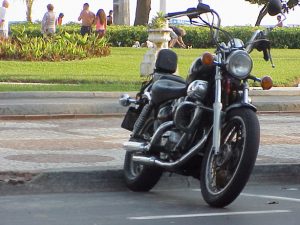People in the U.S. have a number of Constitutional rights that ensure (among other things) due process as they go about their lives. One of those, as outlined in the Fourth Amendment to the U.S. Constitution, is the freedom from unreasonable search and seizure. It has long been established that warrants are generally required to initiate a non-consensual search of one’s person or property. However, there is an automobile exception that allows warrantless searches if the vehicle is traveling on a public road and the law enforcement officer has reasonable suspicion of a crime. 
Now, in what’s being hailed a win for privacy rights, the U.S. Supreme Court has just handed down an 8-1 decision holding police are not allowed to search the area around a private home absent a warrant – even if they believe they’ve seen stolen property on site. A motorcycle in a driveway was was started this particular case.
Officers at a county police agency in Virginia say they attempted to initiate a traffic stop of a motorcycle rider on two different occasions, but both times, the driver evaded. Police were able to learn from those encounters that the motorcycle in question was stolen. A suspect was identified, based on Facebook photos the suspect had posted of the motorcycle in question, which was parked at suspect’s girlfriend’s home. An officer went to that location, where a motorcycle was spotted – covered by a tarp – in the driveway. The officer – who did not have a warrant and was not invited onto the property – removed the tarp. Based on the information he gathered, he identified the bike as stolen and arrested the suspect – who claimed he purchased the motorcycle without a title. He was charged with receiving stolen property. Continue reading
 Fort Lauderdale Criminal Attorney Blog
Fort Lauderdale Criminal Attorney Blog



